Top 10 highest mountains in Germany
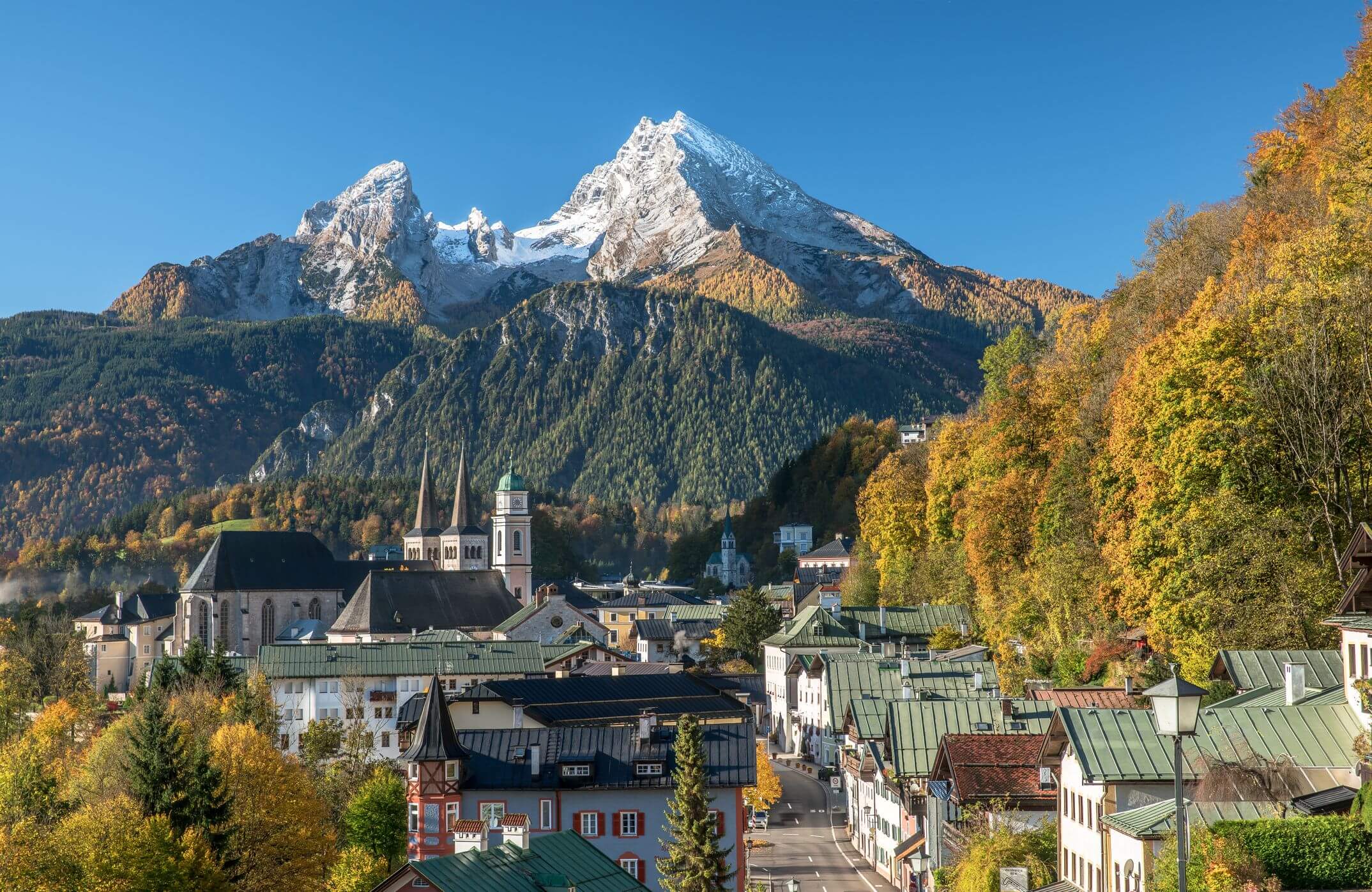
Germany is famous not only for its traditions, attractions, and high level of service. A huge number of tourists and professional climbers come here every year to enjoy the magnificent mountain views and overcome the popular mountain routes.
We present to you the top 10 highest mountains in Germany
1. Zugspitze, 2962 m
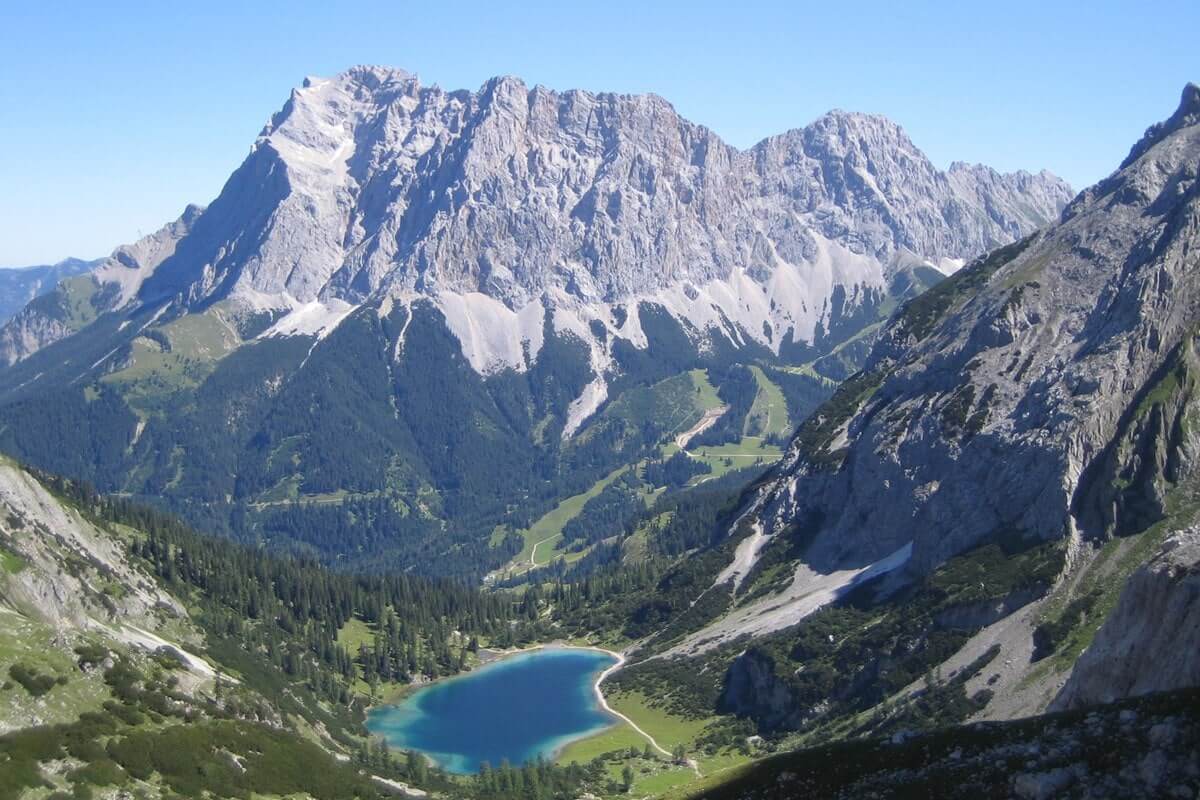
The Zugspitze is located at an altitude of 2962 m above sea level. Its highest peak is the Wettersteingebirge, and at the same time, it is the highest mountain in Germany. The Zugspitze massif is located southwest of Garmisch-Partenkirchen in Bavaria and northern Tyrol.
The border between Germany and Austria runs through its western peak. To the south of the mountain is the Zugspitzplatt, a karst plateau with numerous caves.
On the flanks of the Zugspitze are three of the five Bavarian glaciers: Höllentalferner, North, and South Schneferner, both of which are at high risk of retreat.
2. Hochwanner, 2744 m
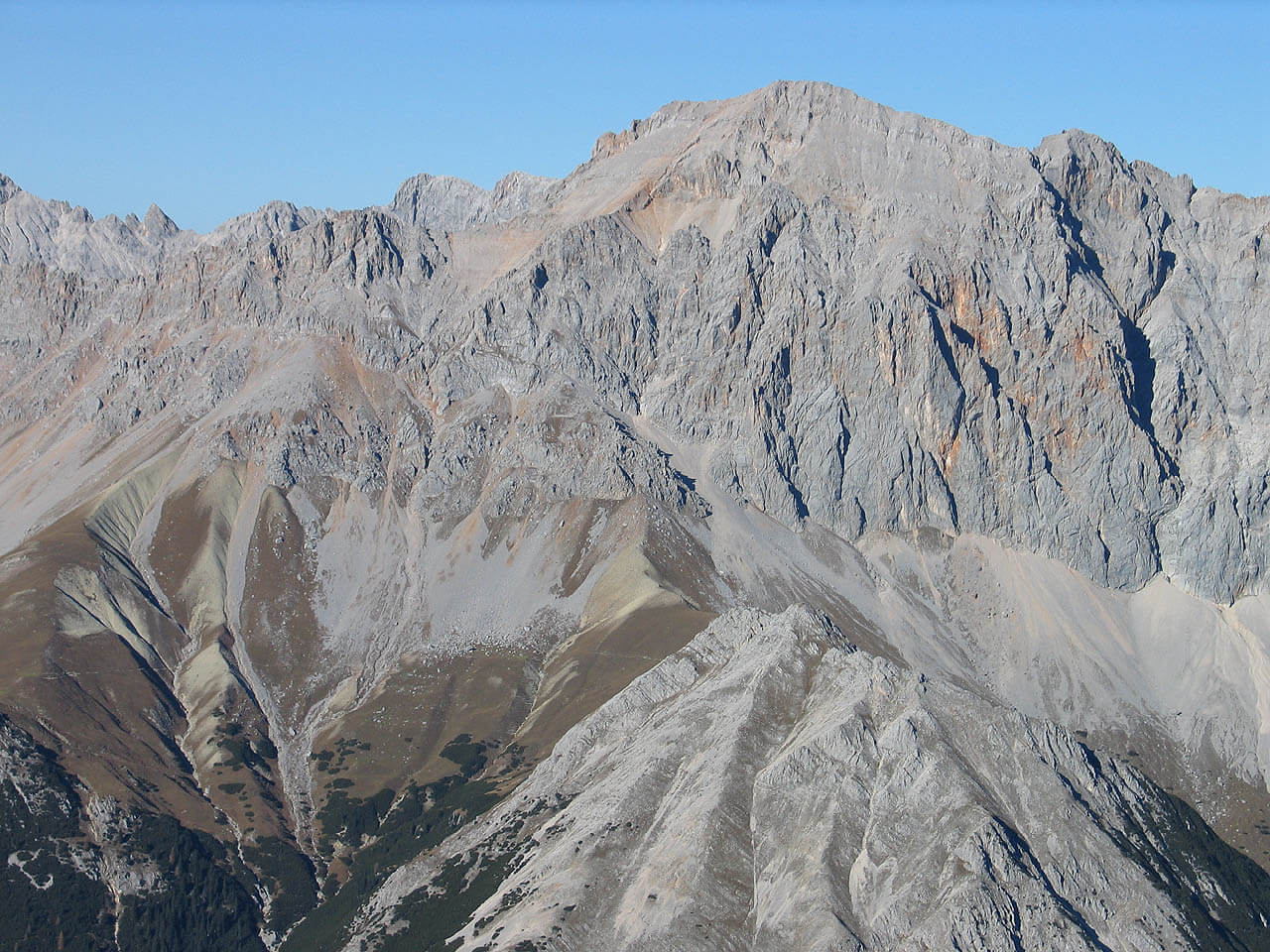
Hochwanner is a summit in the Wetterstein mountains, which is 2,744 meters above sea level. Hochwanner is the second largest mountain in Germany after the Zugspitze (assuming that even a higher snow peak, as well as slightly higher peaks, are considered only a secondary peak of the Zugspitze).
Hochwanner is located on the German-Austrian border between Garmisch-Partenkirchen and Leutash. It is the highest peak of the main Wetterstein ridge, which crosses Gatterl from the Upper Wettersteinspitze above Mittenwald in the direction from west to east: from the Hochwanner massif to Rheinthal, Austrian Leutasthal, Geisthal, Zugspitze, Mieminger Kett, Jubileendip, and the Central Karst, Jubileendwendy, Jubilee.
3. Motart, 2723 m
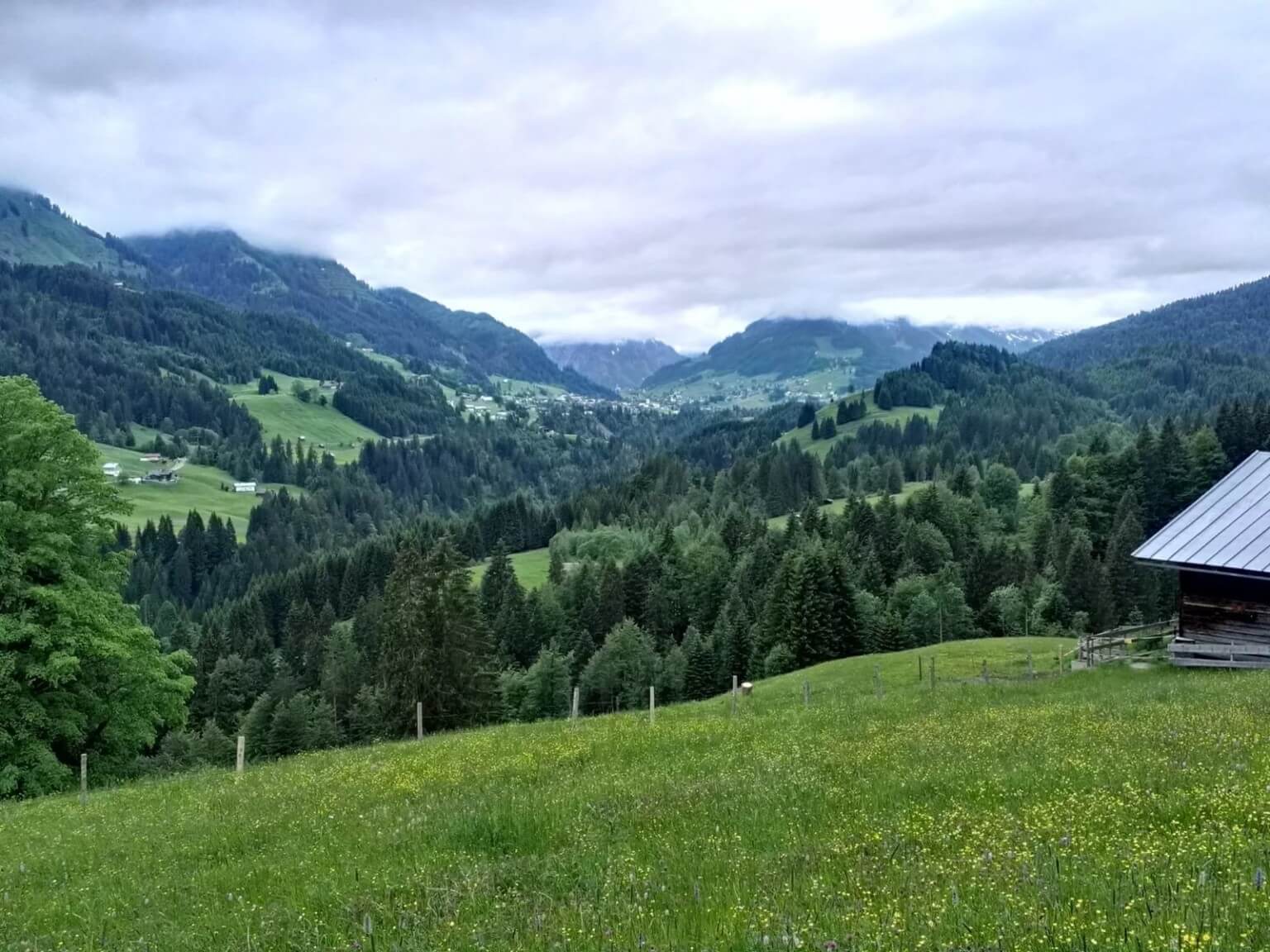
The first ascent to the Motart was held in 1956. The most suitable time to climb the mountain is considered to be March, April, October, November. Conquering the top of Motart is not a difficult mountaineering task. Some sections may require some effort to overcome, but the entire route can be completed in one day without the use of a large number of special tools and climbing equipment.
Depending on the climbing plan and season, the climbing routes may differ markedly and, accordingly, a peak of this level can be a great training ground.
4. Watzmann, 2713 m
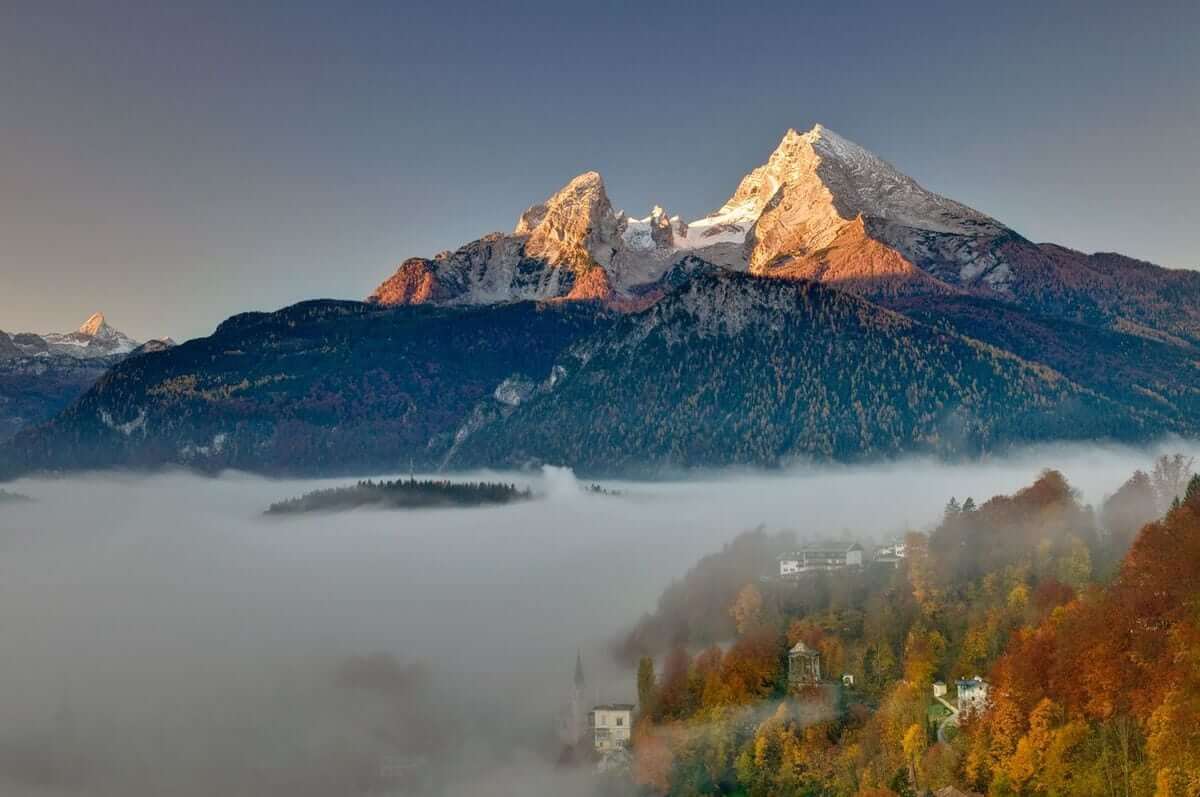
Watzmann is the Central mountain range of the Berchtesgaden Alps. Watzmann has a large altitude difference in the Eastern Alps. The highest peak is the Watzmann-Mittelspitze (2,713 m above sea level), at the same time it is the highest point in the German part of the Berchtesgaden Alps.
Around Watzmann and Nebogipfel (little Watzmann or Watzmannspa and Watchmaking) infused Watzmannspa. The Eastern wall of Watzmann is the highest wall in the Eastern Alps.
Watzmann is located in the South-East of Upper Bavaria in the Berchtesgaden National Park in the communities of Ramsau and schönau am königsee. The municipal border passes through the Central and southern end. The mountain range has an area of about 50 km2. The highest point (2,713 m) is located about 10 km southwest of Berchtesgaden and 30 km southwest of the city of Salzburg on the Northern edge of the Alps.
To the West of Watzmann, beyond The wimbachtal, rises the Hohkalter (2607 m), to the North, beyond the Ramsauer Ache valley, the Dead Man (1392 m) and to the South of the Schneiber (2330 m). To the East, beyond the Konigsee, are the Jenner (1,874 m) and the Kalersberg (2,350 m). Climbing is usually done from the North: starting from the area of Ramsau in Wimborne or Hinterseer.
5. Schönfeldspitze, 2653 m
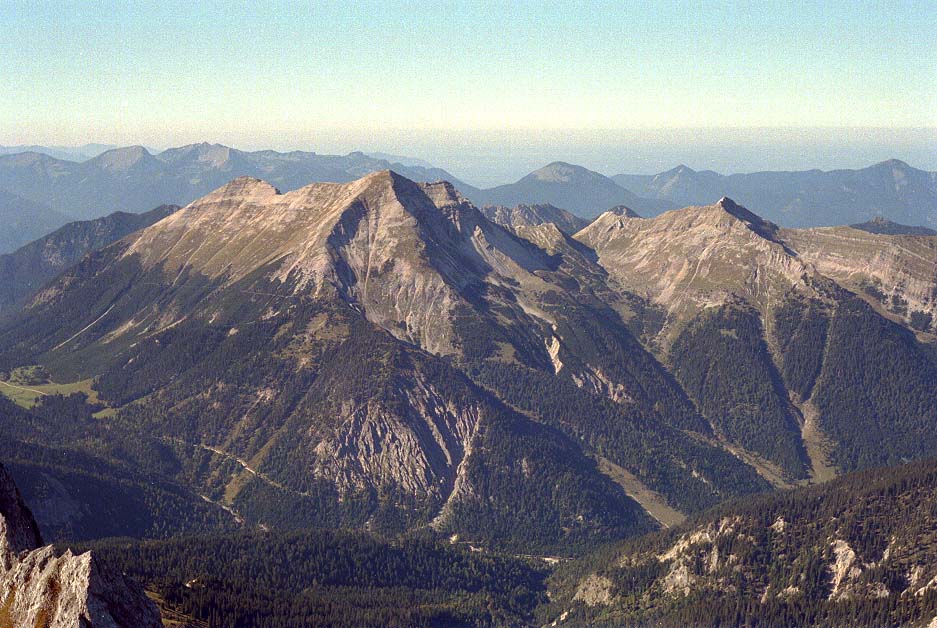
The Schönfeldspitze is the highest peak of the Soierngruppe in the Bavarian Karwendel. The summit can be climbed either from the Seinsbach valley or from Soiernhäuser on the Soiernseen. The latter route is considered a more trouble-free pass into the mountains.
6. Hochfrottspitze, 2649 m
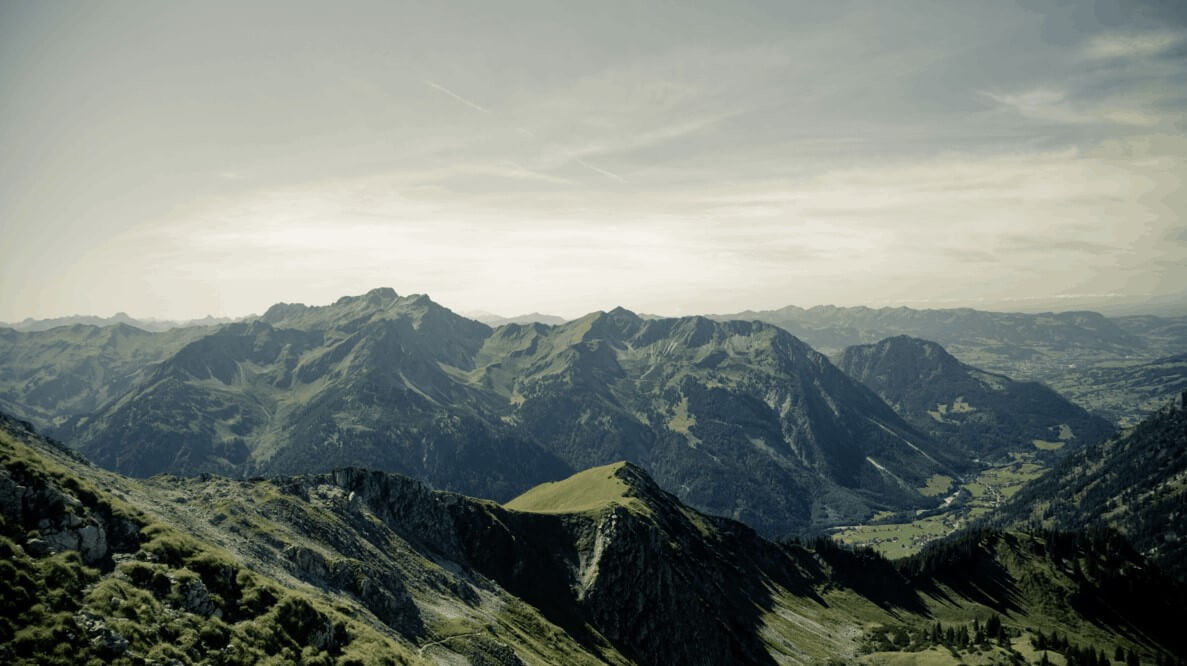
The Hochfrottspitze is a 2649 meter high mountain in the Allgäu Alps near Oberstdorf and at the same time the highest German peak in the Allgäu Alps and Schwaben.
Geologically, it is similar to the surrounding peaks of brittle, eroded major dolomite. The border between Germany and Austria runs through this ridge. The Hochfrottspitze, together with the neighboring Madelegabel and Trettachspitze, forms the famous triumvirate on the main Allgäu ridge. In the south and east, the lively Heilbronner Veg runs 100-150 meters below the summit.
The first ascent of the Hochfrottspitze was made in 1869 by Hermann von Bart. Unlike Madelegabel, climbers rarely climb here. The most problematic route for climbers is the route through the northeastern ridge: from the Schwarzmilzferner, a simple fragmentary surface with a short ridge leads to the gap between Medelegabel and Hochfrottspitze.
7. Mädelegabel, 2645 m
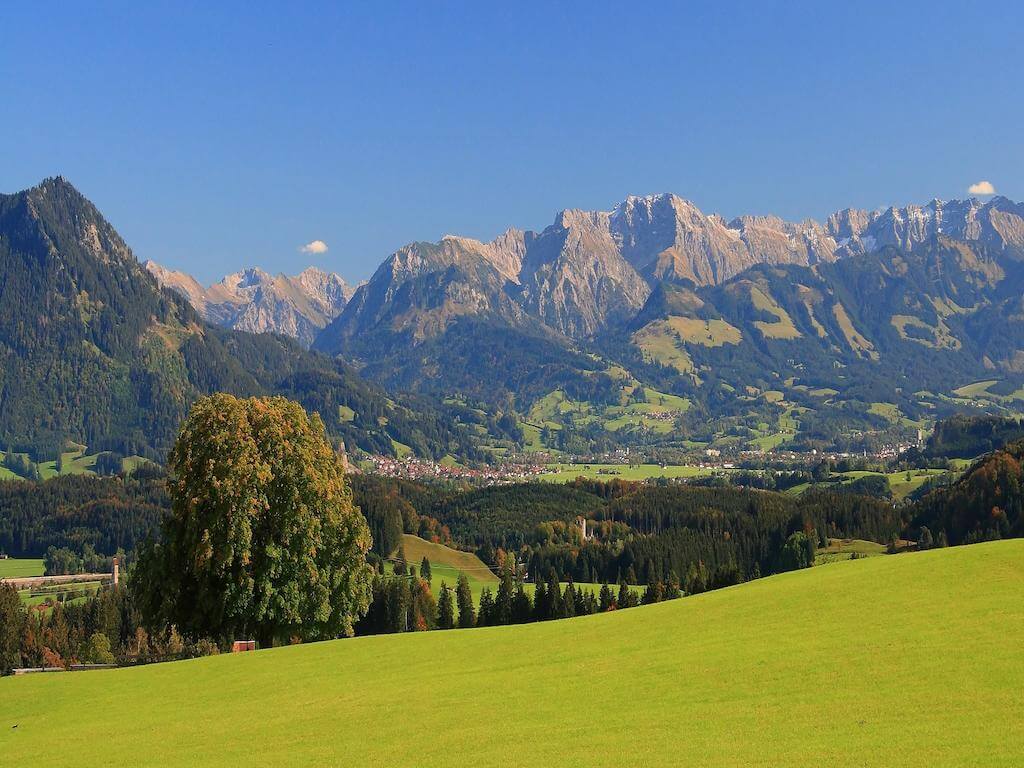
Mädelegabel is a 2645 meter high mountain in the Allgäu Alps near Oberstdorf. This is one of the most famous peaks of the German Alps. In the Allgäu Alps, it is the fourth highest peak with walls up to 400 meters high, built of basic dolomite.
Together with Trettachspitze and Hochfrottspitze, it forms the famous triumvirate on the main Allgäu ridge. The name of the mountain comes from Mähder (mown mountain meadow). Originally Madelegabel was the name for all three peaks of the triumvirate.
The border between Bavaria and Austria runs through this ridge. On the southeast side, there is the small Schwarzmilzferner glacier. The very popular Heilbronn climbing route runs south of the summit.
A huge number of tourists visit this place every year. Popular holiday destinations here are Waltenberger House (travel time to the summit 2.5 hours), Kemptner Hütte (2.75 hours), and Rappenseehütte (5 hours).
8. Partenkirchner Dreitorspitze, 2633 m
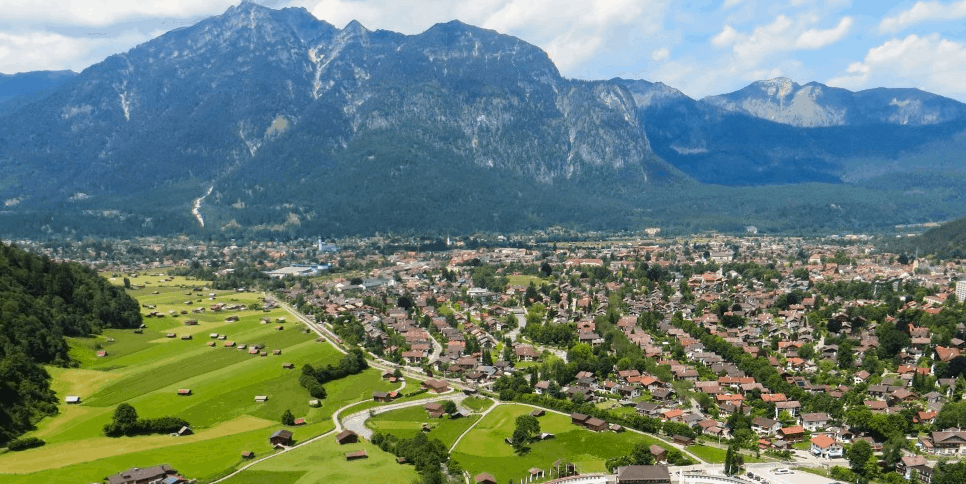
Partenkirchner Dreitorspitze is a powerful and highly visible massif in the eastern part of the Wetterstein Mountains. It is divided into Partenkirchner (2633 m above sea level) and Leutascher Dreitorspitze (2682 m above sea level), both of which have several peaks.
The main peak of Germany's fourth-largest massif is the Leutascher Dreitorspitze, also known as the Karlspitze. To the east of Dreitorspitze lies the Leutascher Platt karst plateau, comparable to the Zugspitzplatt at the foot of the Zugspitze.
The climbers awarded the main peaks the first and second degrees of difficulty. At the western summit of Partenkirchener Dreitorspitze, there is a cable-protected easy route through the Ferrata, which is named after the famous explorer of the Northern Limestone Alps Hermann von Barth.
All other peaks are reserved for climbers. The ascent usually takes place as part of a two-day tour with an overnight stay in Meilerhütte.
9. Alpspitze, 2628 m
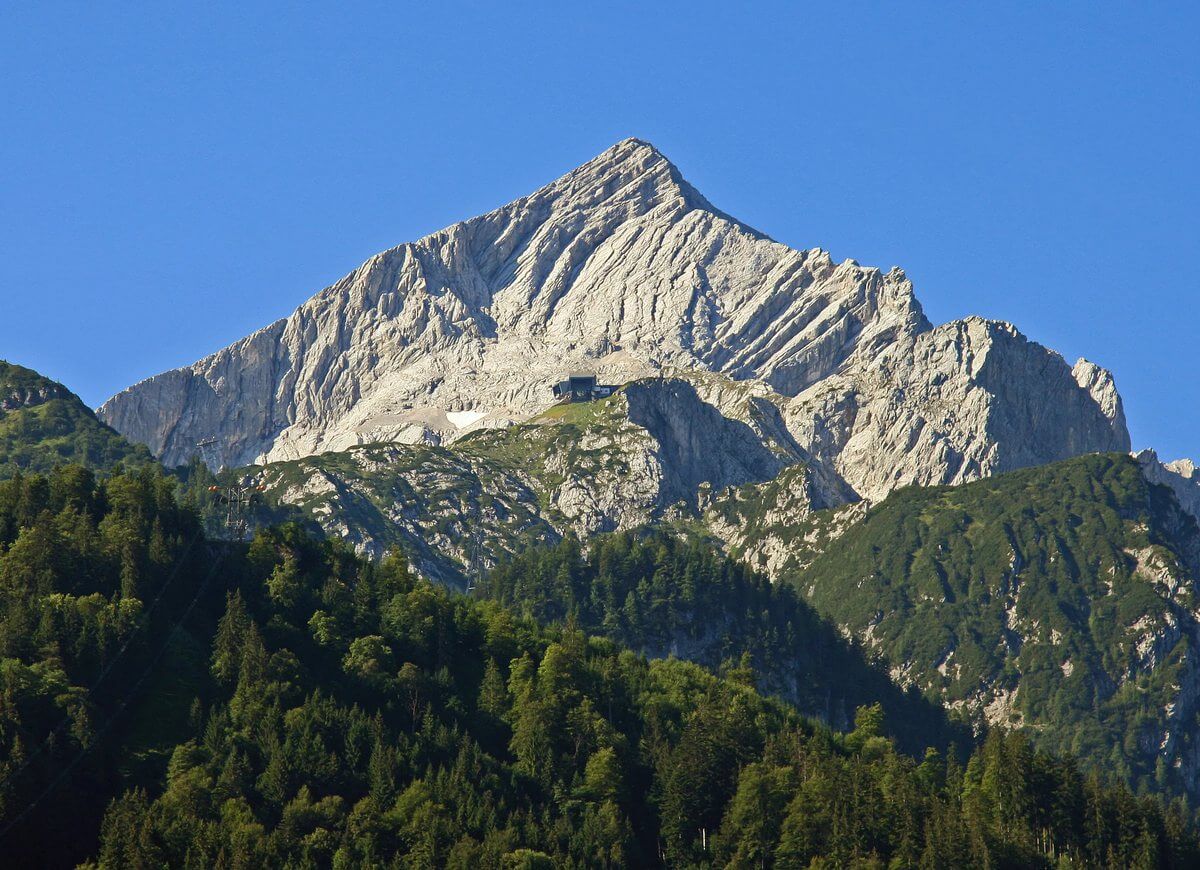
Alpspitze is a 2628 m high peak in the Wetterstein Mountains. With its pyramid shape, it is considered a landmark in Garmisch-Partenkirchen and one of the most famous and beautiful mountain creatures in the Northern limestone Alps. Alpspitze consists mainly of Wetterstein limestone.
There are several climbing routes on Alpspitz. The shortest ascent is from the upper station Osterfelderkopf (2033 m) Alpspitzbahn from Garmisch-Partenkirchen. From Osterfelderkopf the Alpspitz can be climbed either directly via the "Alpspitz-Ferrata" (an easy, largely protected route) or via the Nordwandsteig, which turns east towards Obercar and from there leads to the summit.
The frequently climbed route from Alpspitze through the Jubilee Ridge to the Zugspitze is a challenging and long climb that involves climbing the third difficulty level of the UIAA scale.
10. Bockkarkopf, 2609 m
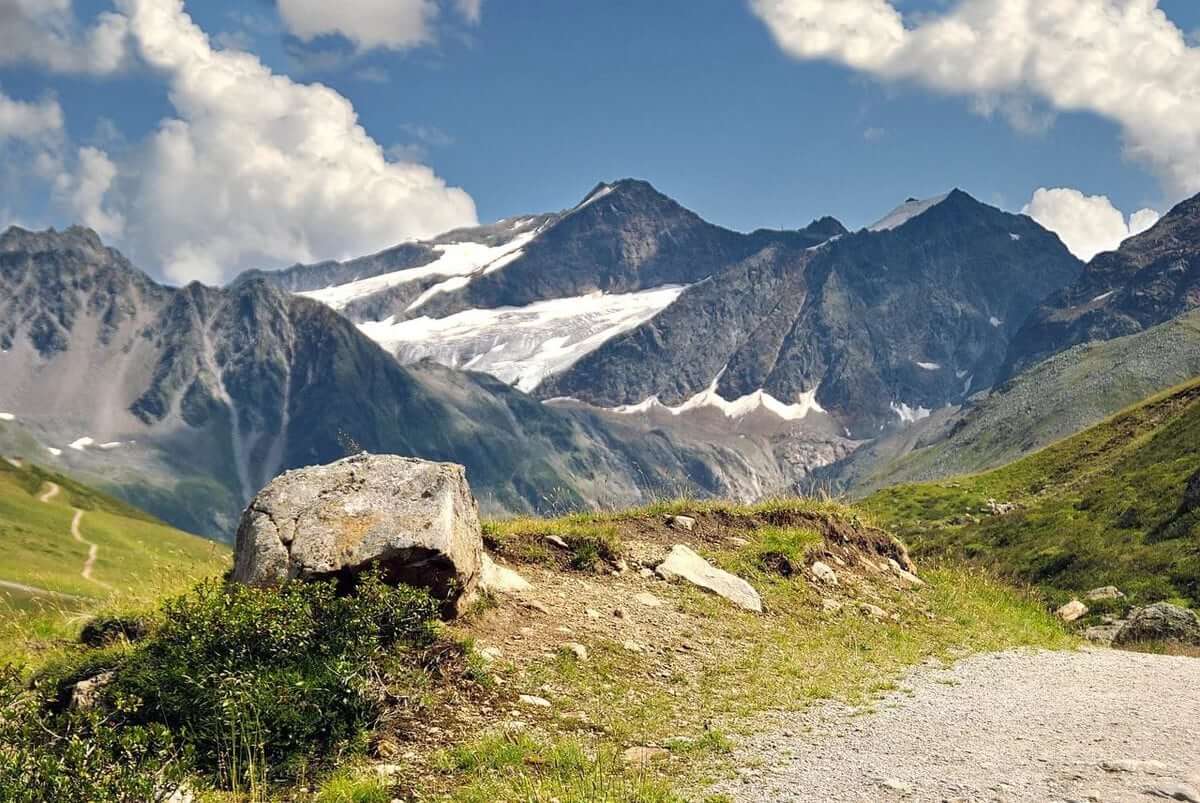
Bockkarkopf is a 2609 m high mountainous part of the main ridge of the Allgäu Alps. It is the ninth highest peak in the Allgäu Alps. It is located between Wilden-Mann in the southwest and the Hochfrottspitze in the northeast. The well-beaten path of Heilbronner leads to the pyramid-like summit.





